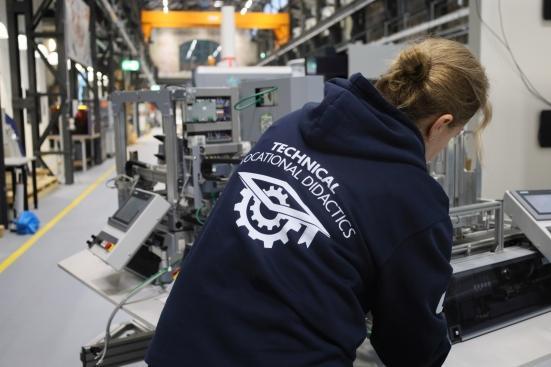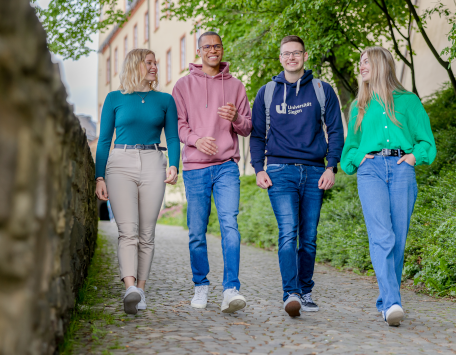Learning and teaching artificial intelligence in a practical way
Learning and teaching artificial intelligence in a practical way
Artificial intelligence (AI) is fundamentally changing the way we work - especially in industry. Production processes are controlled digitally, machines carry out automated self-diagnoses, smart systems detect quality deviations - for example in 3D printing - and automatically correct them in real time. Well-trained vocational school teachers are needed to ensure that trainees in these areas are fit for the future: they must not only be able to handle AI technologies, but also be able to use them in lessons together with the students in a reflective manner. This is where the BRÜCKE-4.0 project at the University of Siegen comes in. It is funded by the Stifterverband der Deutschen Wissenschaft and the Mercedes-Benz Fund with around 50,000 euros.
In cooperation with the Berufskolleg Technik Siegen and the Smarten Lernfabrik Buschhütten (SLB), a team from Prof. Dr. Ralph Dreher's Chair of Technology Didactics at Vocational Colleges (TVD) is developing an innovative teaching-learning module for teacher training courses in industrial and technical subjects. It is intended to prepare prospective teachers for the planning, implementation and evaluation of teaching units ("learning situations") in which AI technologies are used in real-life application scenarios.
"Our aim is to close the gap between modern technology and school education - in other words, to build a bridge," says project manager Dr. Natali Becker. "AI has long been part of industrial practice and must therefore also become a natural part of vocational teacher training. With BRÜCKE-4.0, we want to show how this can be achieved in a practical, sustainable and open educational resource."
The focus is on real application examples from industry: the student teachers develop learning situations for the use of AI in product design, quality control in 3D printing or predictive maintenance (pre-maintenance) of machines. The concepts are then tested and didactically reflected on together with vocational school students from the Berufskolleg Technik and trainees from the Smarte Lernfabrik Buschhütten. The aim is to promote comprehensive AI skills among the students - based on the professional challenge - as part of self-determined work and life design.
The learning is accompanied by a so-called TutorBot - an interactive, AI-supported chatbot that the project team wants to develop itself. The bot is designed to support students in self-learning, answer questions and offer help - regardless of time and place.
The BRÜCKE-4.0 project is one of five projects nationwide that were selected for funding this year as part of the "Vocational School Digi Teams" program. The results will be made freely available as Open Educational Resources (OER) and are intended to help anchor AI skills in teacher training curricula in the long term.
The "Vocational School Digi-Teams" funding program is part of the Alliance for Teachers of the Future Mission Education.


